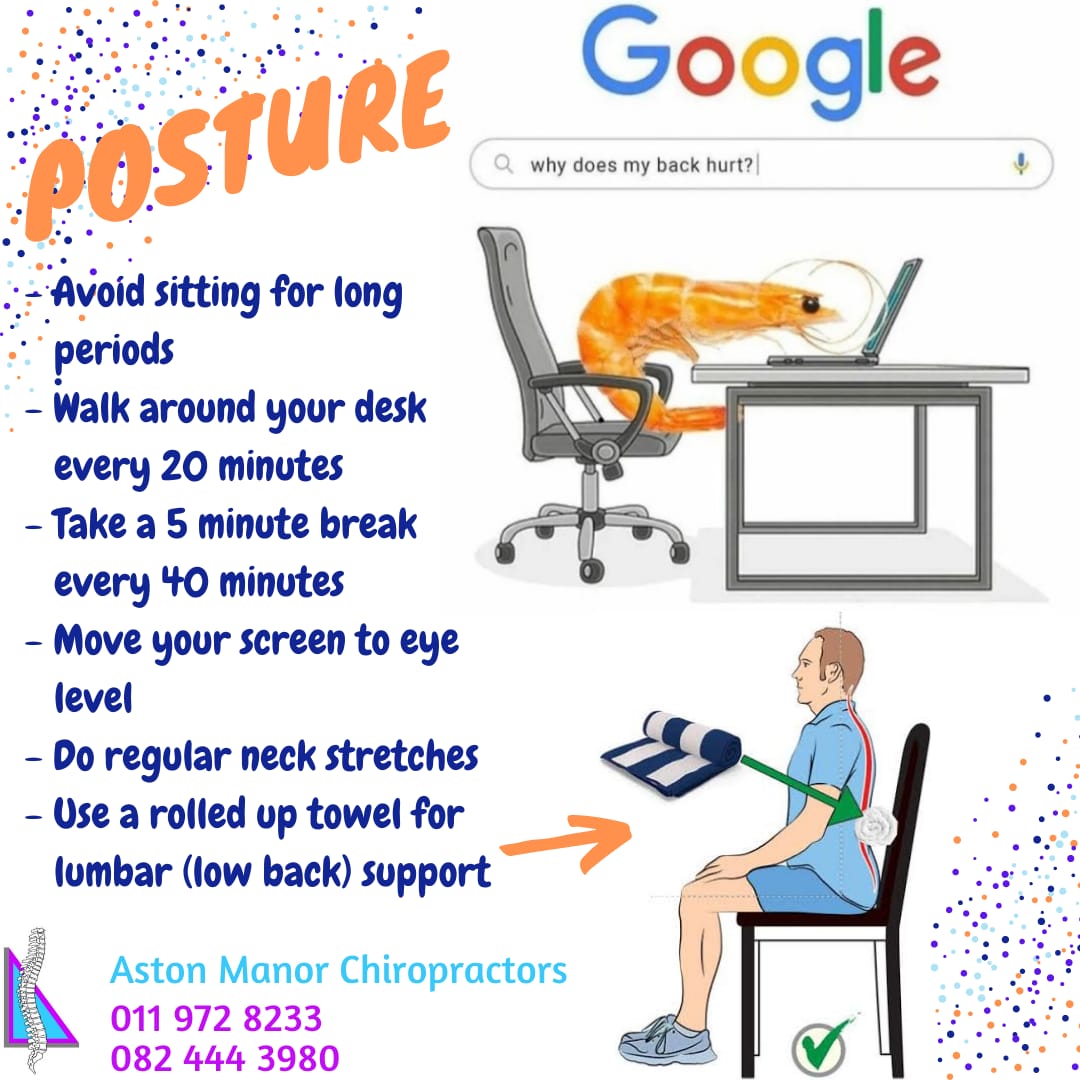Improve Your Posture
Sitting Correctly
Correct sitting posture is important for several reasons:
Overall, maintaining correct sitting posture is key to physical health and comfort, especially in today’s sedentary lifestyle.
What Can I Do?
Always sit upright with your buttocks against the back of the chair.
The back rest should ideally lean slightly backwards.

Your knees should be horizontal with the floor, or slightly above the level of your hips, with both feet on the floor.
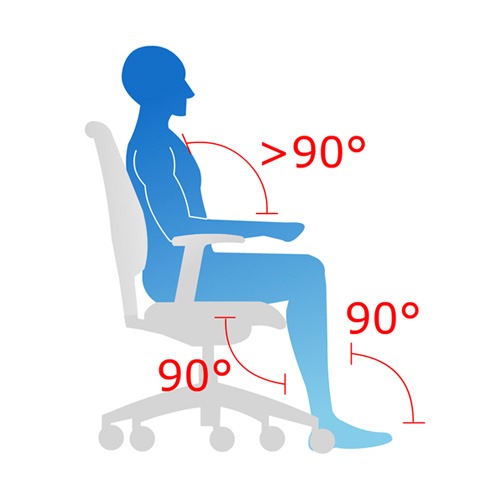
If your chair is too high, get a lower chair or use a foot rest.

Lumbar support is a crucial part of sitting, and if the chair doesn’t provide it, place a small cushion, or rolled up towel in the small (hollow) of your back.
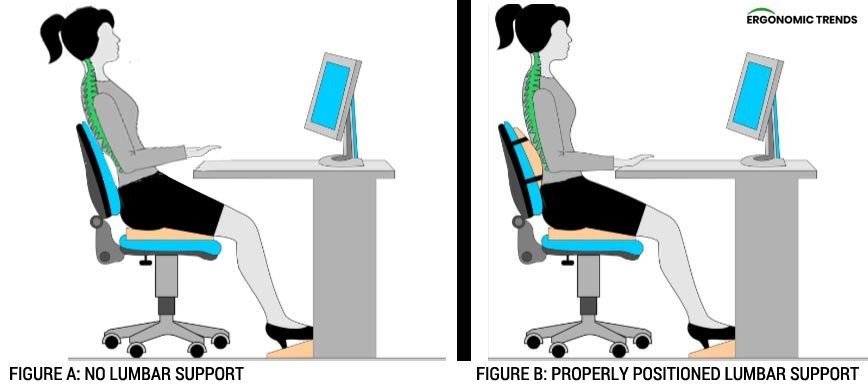
Try not to sit unsupported. But, if it is unavoidable, try to sit upright with your shoulders back, rather than sloughing. If you are short, or the chair is too high place a block under your feet. Never cross your legs or knees.
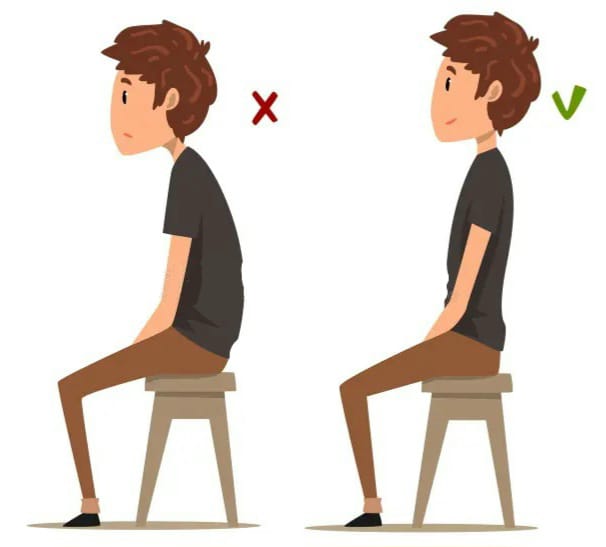
Using a slanted desk will greatly reduce the stress to your shoulders and neck. Raising the back legs of the desk, on a wooden wedge, or using an arch lever file as a wedge, are some of the ways to correct this problem.

If you have too slouch forward to rest your forearms on the desk, the desk is too low. Raise the desk legs or use a lower chair. The best remedy for armrests is to buy a chair with adjustable armrests that can be adjusted as the needed
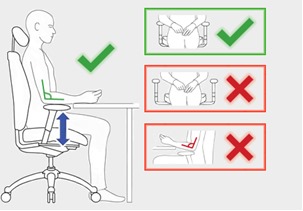
Sitting for long periods can have negative effects on your health, including increased risk of back pain, poor circulation, and decreased energy levels. To counteract these effects, it's a good idea to set a timer to remind you to get up and move regularly. Aim for a brief break every 30 to 60 minutes—stand up, stretch, or take a short walk. These small breaks can help improve circulation, boost your mood, and enhance overall productivity, making it easier to maintain focus and energy throughout the day. Prioritizing movement can significantly benefit your physical and mental well-being.
Raise or lower your chair to fit the desk height correctly, rather that leaning forward.
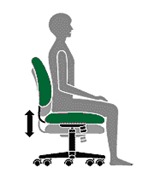
In conclusion, maintaining correct sitting posture is essential for overall health and well-being. It helps prevent pain and discomfort, supports spinal health, enhances breathing, and boosts productivity. By being mindful of your posture and taking regular breaks to move, you can reduce the risks associated with prolonged sitting. Adopting these practices not only promotes physical comfort but also contributes to better mental focus and energy levels, making it vital for anyone who spends significant time seated. Prioritizing good posture is a simple yet powerful step toward a healthier lifestyle.
